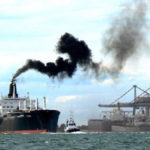search the site
We must continue to prioritise safety alongside decarbonisation
in International Shipping News,Shipping: Emission Possible 18/12/2023

Maintaining seafarer safety and engine health continue to be vital as a variety of new marine fuels and technologies begin to arrive
In current marine decarbonisation discussions new and changing fuels are taking centre stage. The conversation has mainly focused on their emissions, availability and costs. While these topics are clearly important, other key parts of the decarbonisation picture, in particular safety and engine health, should not be overlooked.
The dedication of seafarers and everyone employed in marine supply chains is the foundation of the entire commercial shipping industry. People are key and not losing sight of the need for crew safety and wellbeing to be prioritised is an important part of keeping seafaring an attractive career.
As the industry evolves, safety and sustainability need to continue to go hand-in-hand and evolve together. Things like focussed training, development of standards and regulations for alternative fuel handling, new engine technologies, and appropriate lubricant use can all play a role in seeking to minimise risks to crew today and in the future.
Paying attention to technical details which protect crews is especially important as the widening fuel mix can create an increasingly complex operating environment. It must not be forgotten that, for example, fuels and lubricants are intrinsically linked to operations. Any change to either – be it in terms of supply, specification or type – could have a knock-on effect on the other.
This landscape is further complicated by the risk of off-specification fuels entering the mix. Recent research from Lloyd’s Register and Thetius estimates that more than 1m metric tonnes of off-specification or non-compliant fuels are detected each year, costing ship operators between $27,000-$50,000 per incident.

Gianluca Marucci, Castrol Global Marine and Energy Technical Services Director
Andrew Shaw from LR’s Fuel Oil Bunker Advisory Service recently highlighted that this new research highlights the issues surrounding fuel quality and the importance of proper testing in an era of contamination and new blended products that put at risk the safety of crew, the environment and the protection of the vessel as an asset.
Focussing on safety as operational complexity grows not only protects seafarers but also engine assets. Costing millions of dollars, the reliable and safe operation of marine engines can be the difference between profit or loss to every commercially trading vessel travelling the world’s oceans. These pieces of engine hardware have become more advanced tools supporting shipping’s decarbonisation goals, and potentially they are also more vulnerable – impacted by the need to properly combine new fuel use with proper maintenance routines, thorough testing and lubricant use.
More than ever, the right choice of lubricant is an operational and technical issue. Fundamentally at the engine room level, a vessel needs three things to operate safely: fuels for propulsion, well-maintained engine hardware, and appropriate lubricants to support these. If the fuel is considered a ship’s energy source (its food if you will), the lubricant should be considered its blood, providing essential evidence as to the current health of the engine and critical machinery through testing.
A well-maintained engine room and proper lubrication not only protects crews and engines but also supports engine and vessel efficiency. This is only set to become more important as regulations such as the International Maritime Organization (IMO) Carbon Intensity Indicator (CII) mature and become more impactful. While potentially only incremental, several small efficiency gains quickly add up and can be the difference between two CII ratings.
Safeguarding seafarers remains the priority especially during this evolving and turbulent time in our industry. By all of us continuing to prioritise developments in safety in shipping alongside decarbonisation, we can have engines that remain reliable and efficient, as the industry and its people move forward
Source: By Gianluca Marucci, Castrol Global Marine & Energy Technical Services Director


















